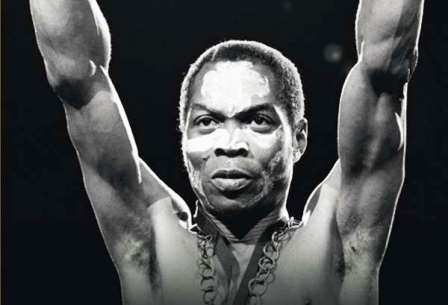ENTERTAINMENT
Fela still relevant 20 years after his death, says Segun Arinze

Popular Nollywood actor and TV personality, Segun Arinze, known as “Black Arrow’’, says Afro-beat legend, Fela Anikulapo Kuti, is still relevant 20 years after his death.
Fela’s elder brother, Prof. Olikoye Ransome-Kuti, a former Minister of Health, announced his death from complications related to HIV and AIDS on Aug. 2, 1997.
Arinze said in a telephone interview with our reporter in Abuja on Wednesday that the issues Fela addressed in his works were still relevant.
“He is a great icon and till date, his music still stands relevant. Most of those things he said in all his songs are prevalent till date.
“He was like a prophet but as the saying goes, a ‘prophet is not respected in his home town’, which is exactly what played out in his life.
“We still keep hope that the society will continue to imbibe the messages he left behind for the much needed change to come,’’ Arinze said.
Arinze described Fela as a great artiste, who understood how to use music to pass on messages.
He said Fela started passing messages before other activists started using music to propagate worthy and good causes.
“And of course, he was being recognised by the government, people and the society; Fela was great, we can never forget him in Nigeria, Africa and the world stage.
“It even got to a level of staging a play in his honour, Fela on Broad Way; what else can you ask for?’’ he asked.
Arinze said Fela’s works encouraged other musicians in Nigeria to pass positive messages through music.
He said musicians should learn, live and share experiences with people in their works.
Fela was a Nigerian multi-instrumentalist, composer, pioneer of the Afro-beat music genre, human rights activist, Pan-Africanist, polygamist, mystic, legend and political maverick.
He was born on Oct. 13, 1938, in Abeokuta into an upper-middle class family.
His mother, Funmilayo Ransome-Kuti, was a woman activist and his father, the Rev. Isreal Oludotun Ransome-Kuti, was an Anglican minister and school principal.
Fela was a cousin of Nobel laureate Wole Soyinka.
He attended Abeokuta Grammar School and later went to London in 1958 to study medicine but instead studied music at Trinity College of Music.
Fela played musical instruments, such as saxophone, keyboard, trumpet, guitar and drum.
He married his first wife, Remilekun Taylor in 1960 and in 1963, he moved back to Nigeria, re-formed Koola Lobitos and trained as a radio producer for the Nigerian Broadcasting Corporation.
Because of his social activism, he ran into trouble on many occasions with the military regimes in Nigeria in the 1970s and 1980s and was jailed.




 Davido's Net Worth & Lifestyle
Davido's Net Worth & Lifestyle 
